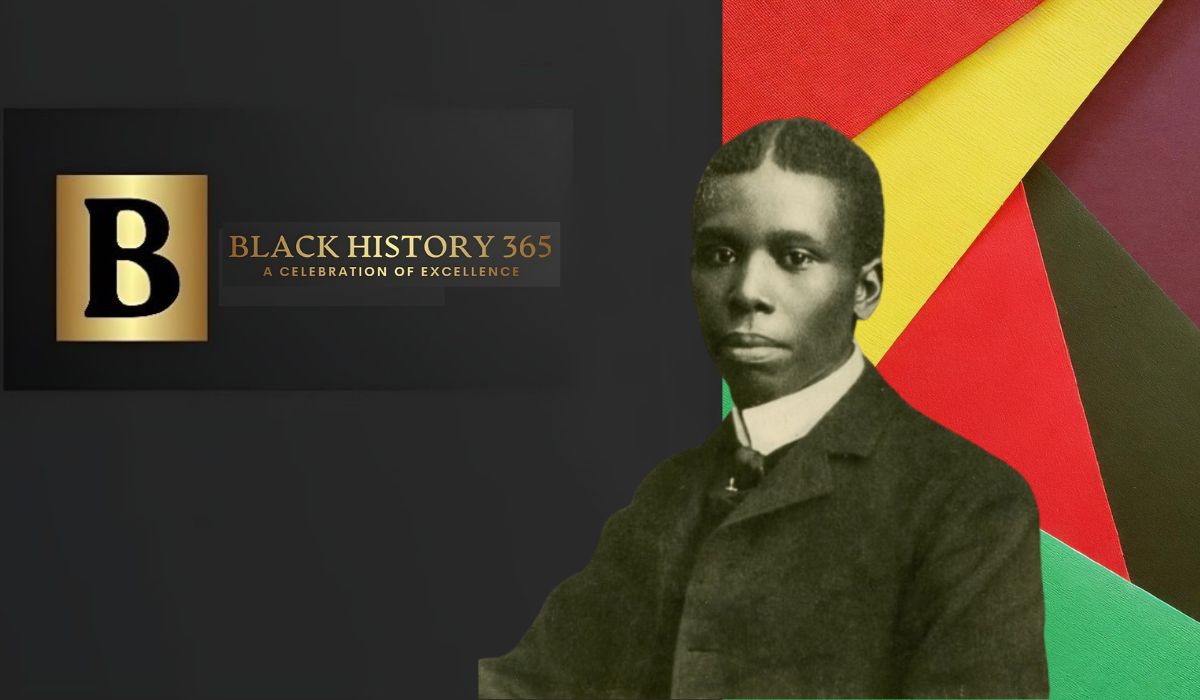A Literary Luminary of Black History
Image credit, Wiki
In the realm of American literature, there exists a constellation of brilliant stars whose contributions have illuminated the path for generations to come. Among these luminaries shines the incomparable Paul Laurence Dunbar, a titan of poetry and prose whose words continue to resonate with profound depth and enduring relevance. As we celebrate Black History 365 days a year, it is essential to pay homage to Dunbar’s enduring legacy and his invaluable contributions to the cultural landscape of America.
Born on June 27, 1872, in Dayton, Ohio, Paul Laurence Dunbar emerged from humble beginnings to become one of the most celebrated writers of his time. Growing up in a post-Civil War era marked by racial segregation and discrimination, Dunbar faced formidable challenges. However, his passion for literature and his remarkable talent transcended the constraints of his circumstances. At an early age, Dunbar demonstrated a precocious gift for language, composing poems that showcased his innate lyrical prowess.
Despite encountering barriers due to his race, Dunbar persevered and published his first collection of poetry, “Oak and Ivy,” in 1893, while still in his early twenties. This initial publication garnered attention for its evocative verses and lyrical sophistication, establishing Dunbar as a rising star in the literary firmament. Subsequent works, including “Majors and Minors” (1895) and “Lyrics of Lowly Life” (1896), further solidified his reputation as a preeminent poet of his generation.
Dunbar’s poetry was distinguished by its rich imagery, musicality, and poignant exploration of the African American experience. His verses captured the beauty, resilience, and complexity of black life in America, offering poignant reflections on themes of love, identity, and social justice. Through his mastery of dialect poetry, Dunbar gave voice to the often overlooked nuances of African American speech, infusing his work with authenticity and emotional resonance.
One of Dunbar’s most iconic poems, “Sympathy,” poignantly captures the anguish of oppression and the yearning for freedom. The famous lines, “I know why the caged bird sings, ah me, / When his wing is bruised and his bosom sore,” resonate with universal truths about resilience and the human spirit. Through his poetry, Dunbar illuminated the struggles and triumphs of his community, offering solace and inspiration to readers of all backgrounds.
Beyond his poetry, Dunbar was also a prolific writer of fiction, producing novels, short stories, and plays that showcased his versatility and narrative skill. His groundbreaking novel, “The Sport of the Gods” (1902), addressed themes of racial injustice and socioeconomic inequality, cementing his reputation as a literary trailblazer. Dunbar’s work foreshadowed the themes and styles that would later define the Harlem Renaissance, exerting a profound influence on subsequent generations of African American writers.
Despite facing systemic racism and personal hardships, Paul Laurence Dunbar remained steadfast in his commitment to his craft and his community. His enduring legacy continues to inspire and empower readers around the world, reminding us of the transformative power of literature to transcend boundaries and effect social change. As we celebrate Black History 365 days a year, let us honor Dunbar’s indelible contributions and ensure that his voice reverberates through the corridors of time, inspiring future generations to dream, create, and aspire to greatness.









